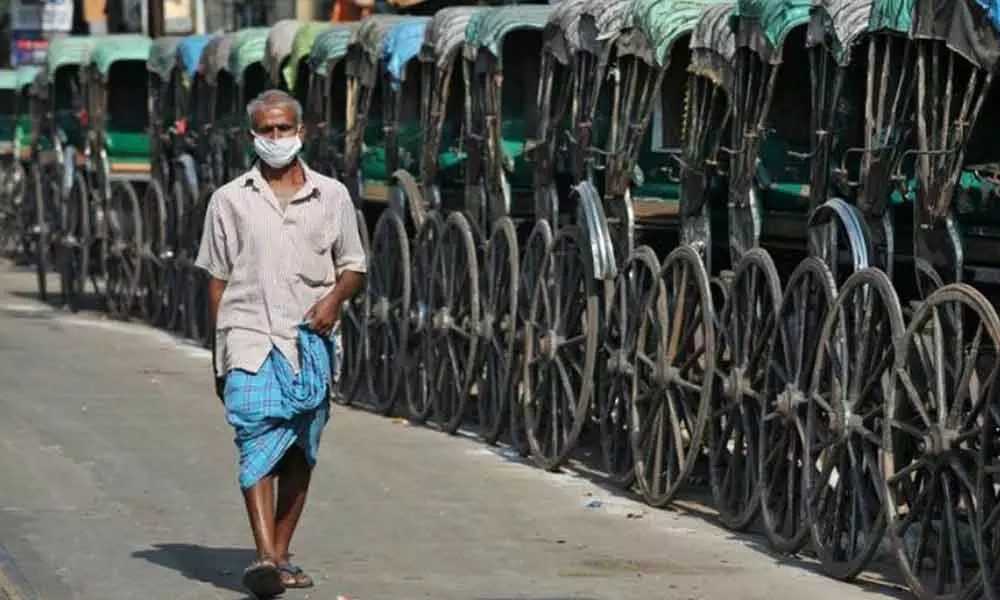40 crore Indian workers may sink into poverty

United Nations: About 400 million (40 crore) people working in the informal economy in India are at risk of falling deeper into poverty due to the coronavirus crisis which is having "catastrophic consequences", and is expected to wipe out 195 million full-time jobs or 6.7 per cent of working hours globally in the second quarter of this year, the UN's labour body has warned.The International Labour Organisation (ILO) in its report titled ''ILO Monitor 2nd edition: COVID-19 and the world of work'', describes coronavirus pandemic as "the worst global crisis since World War II". "Workers and businesses are facing catastrophe, in both developed and developing economies. We have to move fast, decisively, and together. The right, urgent, measures, could make the difference between survival and collapse," ILO Director-General Guy Ryder said on Tuesday.
Worldwide, two billion people work in the informal sector (mostly in emerging and developing economies) and are particularly at risk, the report said, adding that the COVID-19 crisis is already affecting tens of millions of informal workers."In India, Nigeria and Brazil, the number of workers in the informal economy affected by the lockdown and other containment measures is substantial," ILO said. "In India, with a share of almost 90 per cent of people working in the informal economy, about 400 million workers in the informal economy are at risk of falling deeper into poverty during the crisis. Current lockdown measures in India, which are at the high end of the University of Oxford''s COVID-19 Government Response Stringency Index, have impacted these workers significantly, forcing many of them to return to rural areas," it said.
The report said the disruption to the world''s economies caused by the COVID-19 pandemic is expected to wipe out 6.7 per cent of working hours globally in the second quarter of this year – the equivalent of 195 million jobs worldwide."This is the greatest test for international cooperation in more than 75 years. If one country fails, then we all fail. We must find solutions that help all segments of our global society, particularly those that are most vulnerable or least able to help themselves," said Ryder."The choices we make today will directly affect the way this crisis unfolds and so the lives of billions of people. With the right measures we can limit its impact and the scars it leaves. We must aim to build back better so that our new systems are safer, fairer and more sustainable than those that allowed this crisis to happen," he said.Large reductions are foreseen in the Arab States (8.1 per cent, equivalent to 5 million full-time workers), Europe (7.8 per cent, or 12 million full-time workers) and Asia and the Pacific (7.2 per cent, 125 million full-time workers), it said.














